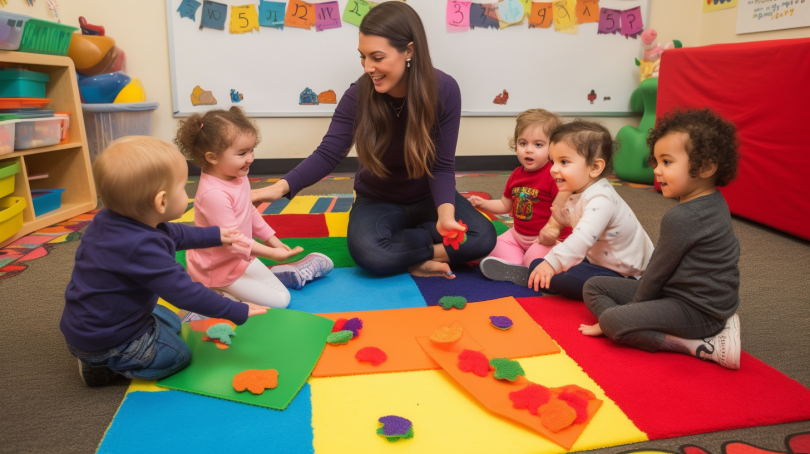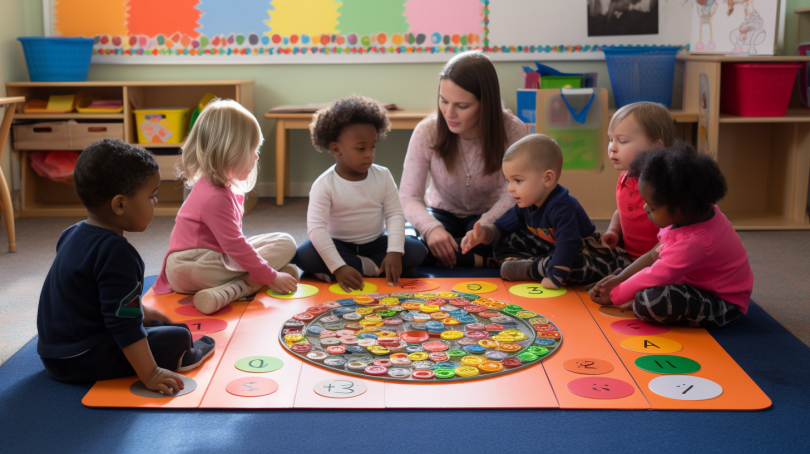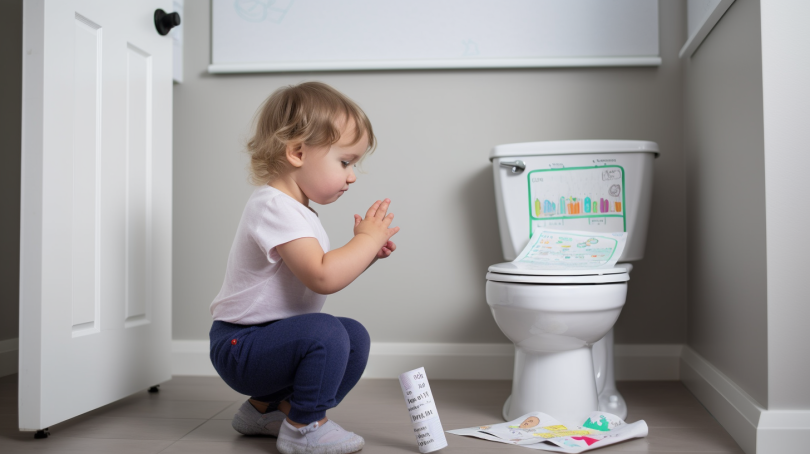Potty training can be a stressful time for both parents and children. Accidents are inevitable, but it's important to handle them correctly to avoid setbacks. First, stay calm and reassure your child that accidents happen. Clean up the mess quickly and thoroughly to avoid lingering odors. Encourage your child to help with the clean-up process to reinforce the importance of using the potty. Consider using waterproof training pants or a mattress protector to avoid messes during sleep. And most importantly, be patient and consistent in your potty training approach. With time and perseverance, accidents will become less frequent and your child will be on their way to successful potty training.
When Is the Best Time to Begin Sleep Training for Your Newborn?
Sleep training is a hotly debated topic among parents, and the answer to when you should start can vary depending on who you ask. However, most pediatricians recommend waiting until your baby is at least 4-6 months old before implementing any sort of sleep training. This is because newborns have small stomachs and need to eat frequently, so waking up during the night is normal and necessary for their development. Additionally, sleep training too early can be harmful to a baby's emotional and physical well-being. As you approach the 4-6 month mark, keep an eye out for signs that your baby is ready for sleep training, such as consistently waking up at the same time every night or being able to soothe themselves without your help. Remember, every baby is different, so don't feel pressured to start sleep training until you and your pediatrician feel comfortable doing so.
10 Fun and Simple Alphabet Activities for Toddlers to Boost Learning.
Looking for some fun and easy alphabet activities to do with your toddler? Look no further! There are plenty of creative and engaging ways to introduce the alphabet to your little one. From making alphabet crafts to playing letter recognition games, these activities will help your child learn the ABCs in a fun and interactive way. In this blog post, we'll share some of our favorite alphabet activities for toddlers that are simple, inexpensive, and sure to be a hit with your little learner. So grab some supplies and get ready to have some letter-filled fun with your toddler!
How Often to Check on Your Baby During Sleep Training: A Comprehensive Guide
Sleep training is an essential process that helps babies learn how to sleep independently. However, it's natural for parents to worry about their little one's well-being during the process. One common question that arises is how often a baby should be checked on during sleep training. While there's no one-size-fits-all answer, experts suggest checking on your baby every 10-15 minutes to ensure they're safe and comfortable. It's important to remember that sleep training takes time and consistency, and frequent checks can disrupt the process. Trust in the process and give your baby the chance to learn and develop healthy sleep habits.
Knowing When to Stop Breastfeeding on Demand: A Comprehensive Guide
Breastfeeding on demand is a popular approach to feeding infants, but at some point, most mothers wonder when they should stop. There is no one-size-fits-all answer, as the decision to stop breastfeeding on demand depends on a variety of factors, including the baby's age, nutritional needs, and the mother's preferences. Many experts suggest that breastfeeding on demand should continue until the baby is at least six months old, but some mothers choose to breastfeed for longer. Ultimately, the decision to stop breastfeeding on demand should be based on what is best for both the mother and baby. It's important to consult with a healthcare provider to determine the best course of action for your family.
The Safety of Infant Sleep Training: What Experts Say
When it comes to sleep training your infant, safety is always a top priority. Many parents may be hesitant to try sleep training due to concerns over their baby's well-being. However, studies have shown that when done properly, sleep training is safe for infants. It is important to work with a pediatrician and a certified sleep consultant to create a personalized sleep plan for your baby that takes into account their unique needs and developmental stage. Additionally, it is important to approach sleep training with empathy and patience, as it can be a difficult process for both the infant and the parents. With proper guidance and a well-designed sleep plan, sleep training can be a safe and effective way to improve your infant's sleep patterns and support their overall health and development.
7 Creative Ways to Make Learning the Alphabet Fun for Your Child
Learning the alphabet may seem like a tedious task for children, but there are fun and engaging ways to make it enjoyable. By incorporating games, songs, and interactive activities, children can learn the alphabet without feeling like they are studying. Parents can use colorful flashcards, create letter scavenger hunts, or even sing the alphabet song with their child to make it more exciting. Additionally, using technology such as phonics apps and educational videos can also make learning the alphabet more interactive and enjoyable. By making it fun, children will be more likely to retain the information and develop a love for learning.
Potty Training Timeline: How Long Does It Take to Successfully Train a Child?
Potty training is a significant milestone for both parents and children. However, the duration of the process varies for different children. Some may take a few days, while others may need several months or even longer. Factors such as age, temperament, and readiness play a crucial role in determining how long it takes to potty train a child. Nevertheless, it is important to be patient and consistent in the process, as pushing a child too hard or rushing them can lead to regression. With the right approach, encouragement, and rewards, most children can successfully transition from diapers to using the toilet in due time.
Effective ways to soothe your newborn to sleep
If you're a new parent, you might be struggling with how to soothe your newborn to sleep. It can be a challenge to get your little one to drift off, but there are a few things you can try. First, establish a bedtime routine that includes a soothing activity like a bath or gentle massage. Next, swaddle your baby to help them feel secure and comfortable. You can also try using a white noise machine or playing calming music to help them relax. Finally, make sure your baby is well-fed and burped before putting them down. With patience and persistence, you'll find the right combination of strategies to help your newborn get the rest they need.









